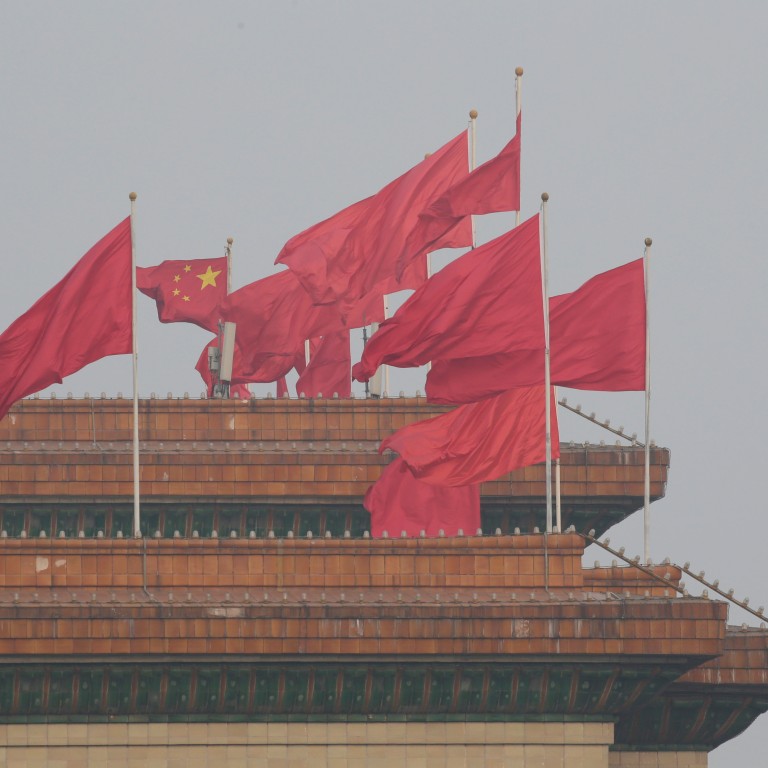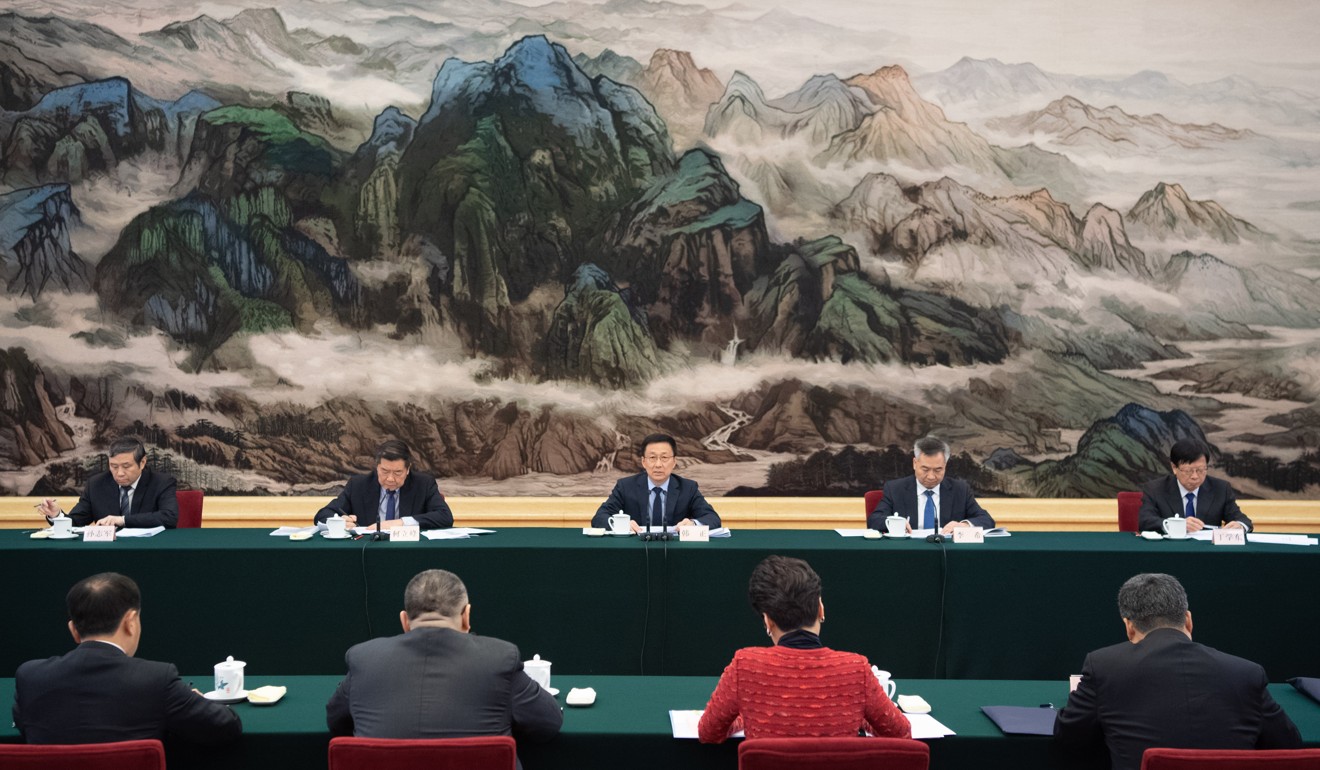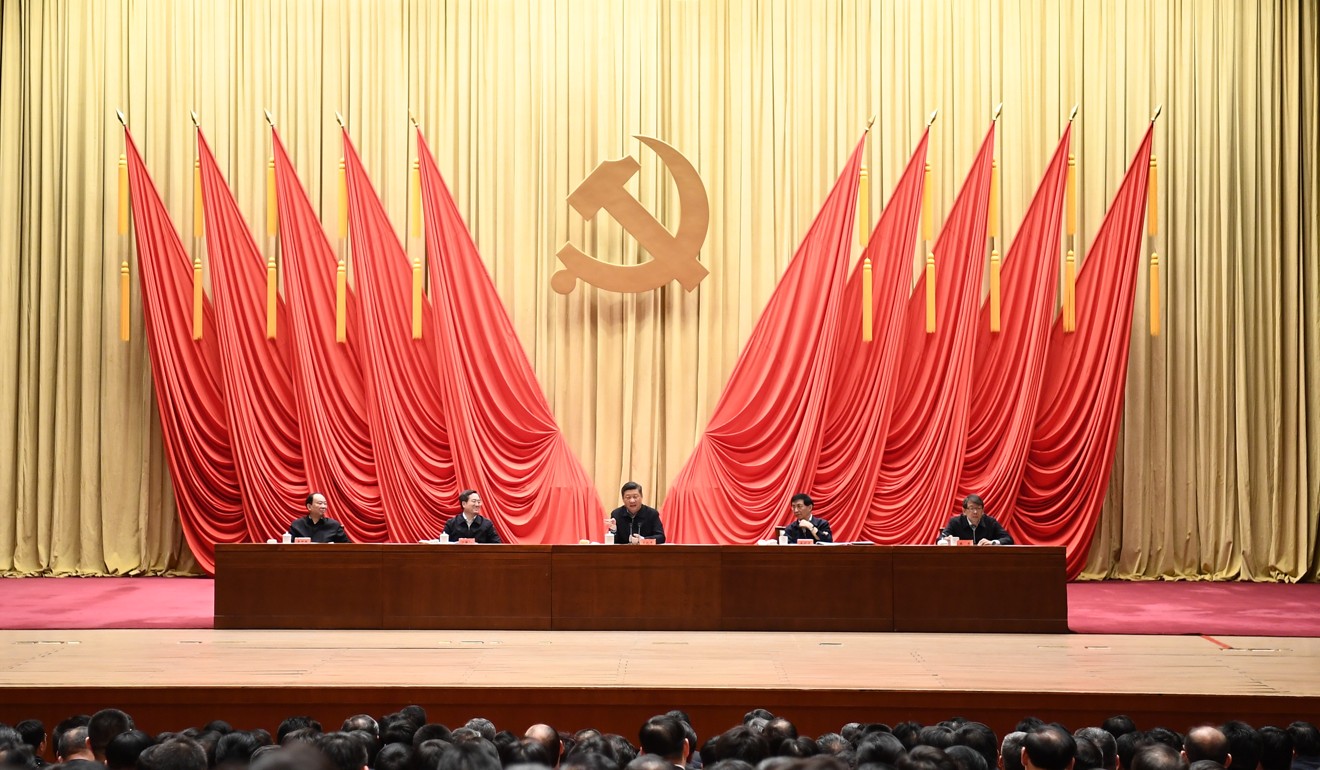
Mainland access and ‘Greater Bay Area’ high on the agenda for Hong Kong delegates to annual meetings of China’s top legislative and advisory body
- Delegates have proposals to build new towns and give greater access to public services for Hongkongers living in mainland China
- About 240 delegates from the city are in Beijing for the meetings of the Chinese People’s Political Consultative Conference and the National People’s Congress
Ambitious plans to build new towns and grant greater access to public services for Hongkongers in mainland China were among the city’s pro-establishment politicians’ top priorities as they travelled to Beijing for the annual meetings of China’s top legislature and advisory body this weekend.
Thomas Cheung Tsun-yung, a local deputy of the National People’s Congress (NPC), will propose a massive land reclamation project seven times as large as Hong Kong leader Carrie Lam Cheng Yuet-ngor’s controversial Lantau Tomorrow project.
Other delegates also planned to submit policy proposals on ways to improve transport connectivity, the business environment, and medical services on the mainland, especially in nine Guangdong cities included in the “Greater Bay Area” project.
This year’s “two sessions”, one of the nation’s biggest political events of the year, came less than a month after Beijing issued its long-awaited bay area blueprint to turn Hong Kong, Macau and nine neighbouring mainland cities into a cluster of world-class metropolises, and a thriving global centre of technology, innovation and economic vibrancy rivalling Silicon Valley, by 2035.
The collective economies currently have a combined population of about 70 million and a GDP of HK$11.7 trillion.

While the annual session of the Chinese People’s Political Consultative Conference (CPPCC) will kick off on Sunday, the focus will be will be on Premier Li Keqiang’s annual government work report, with the annual session of the NPC set to open on Tuesday.
The mainland can reclaim land near the Lingding, Lema and Ladrones Islands … and build homes and bridges to connect it with us
Apart from scrutinising and getting first-hand information about China’s latest development plans and legislation, the two sessions are also rare occasions for delegates to meet mainland officials and make policy recommendations on various topics.
The CPPCC and NPC consist of about 3,000 and 2,000 delegates respectively. Hong Kong’s political, business and professional elites contribute about 200 delegates to the CPPCC and 36 to the NPC.
Cheung, an NPC deputy and a member of local party the Business and Professionals Alliance, will propose creating a new metropolis on a 120 square kilometre artificial island south of Hong Kong.
“The mainland can reclaim land near the Lingding, Lema and Ladrones Islands … and build homes and bridges to connect it with us,” he said, in a reference to islands currently administered by the city of Zhuhai.
Lam has planned to create 1,700 hectares, or 17 sq km, in Hong Kong waters to house 1.1 million people, and estimates have put the cost at HK$500 billion (US$63.7 billion) or more.
But Cheung believes that his proposal would be cheaper. Under his plans, the mainland government would be paying the construction fees and coming up with a reasonable price to sell the whole project to Hong Kong.
In a reference to metropolises such as Beijing, Shanghai and Chongqing, Cheung said: “Some mainland cities have a population of more than 20 million. Hong Kong need to reach such a critical mass to boost its economy, but we don’t have the land to support such a large population.”

Meanwhile, in the CPPCC, delegate Starry Lee Wai-king, chairwoman of the Beijing-loyalist Democratic Alliance for the Betterment and Progress of Hong Kong, was proposing something less ambitious.
Instead of massive reclamations, Lee hoped that several so-called Hong Kong towns might be built in cities in Guangdong province. Those towns would accommodate Hongkongers who struggle with high property prices in the city, and do not mind living and working on the mainland instead.
Hong Kong deputies to NPC must reflect wider views
“A large quantity of homes can be built in places like Zhuhai, Zhongshan and Huizhou … Those homes will be for Hong Kong people only, and these communities will have all kinds of amenities such as shopping malls, cinemas, schools, and hospitals,” she said in a recent press conference.
Lee will also urge mainland authorities to allow holders of the home return permit, the cross-border travel document issued by mainland authorities for Hong Kong, to enjoy access to employment, education and other public services in mainland China.

CPPCC standing committee member Lam Shuk-yee, an honorary president of the Hong Kong Federation of Trade Unions, had a similar proposal in mind.
“Right now, holders of the residence permit can have access to public services, but we think that home return permits should also be included in the system,” she said.
Under a new scheme rolled out last year, Hong Kong, Macau and Taiwan residents who have been living, working or studying on the mainland for at least six months are eligible for the new residence permit. The smart card promises holders the same rights as mainlanders in accessing 18 types of public schemes and services, including employment, and basic medical care.
Delegates’ visit to ‘Greater Bay Area’ cities may mark unveiling of national plans
Lam believes that home return permit holders should be granted access to mainland public services because a lot of them would not be eligible for the residence permit scheme.
NPC deputy Witman Hung also wanted changes to the mainland’s identity documents regime.
But apart from expanding the functions of the home return permit, he hoped authorities would issue a “bay area permit” to make business travel easier, especially for people in the commercial, technology or education sectors.
For all proposals submitted, the mainland authorities are required to either adopt the proposal, explain the government’s stance on the issue, or respond to the proposer within a year, explaining why it could not be adopted.

